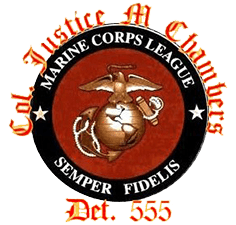PayMaster
Wendy Delisio

Position Description and Responsibility.
The Paymaster shall keep all proper and necessary books for the recording of all the business of this Detachment, including a correct record of all membership accounts. He shall receive all monies, keeping a record of their source and purpose, and shall deposit said monies, in approved and Federally insured accounts, including checking or savings accounts. All monies deposited shall be in the name of the Marine Corps League only. He shall maintain adequate inventories of supplies and merchandise; order all material to be used by the Detachment, receive all invoices for services and material and cause payment to be made for all authorized expenditures.
The Paymaster will provide a financial statement at each meeting. Submit the books to an audit at least 30 days prior to change of Paymaster. The books also must be audited once a year by February 28th.
The Paymaster plays a major role in assuring and maintaining the financial integrity of the Detachment. This officer acts as the controller of Detachment funds, and is responsible for the accounting of Detachment revenues and expenditures. Part of his/her responsibility is keeping officers and members aware of financial status, and insuring that funds are used properly and within approvals determined by Detachment by-laws and/or policies. Financial reports, fees, taxes, Scrutiny of expenditures, and bookkeeping all fall under the purview of the Paymaster.
Characteristics and Traits
- Financial and/or accounting capability
- Attention to detail
- Ability to assess and communicate financial status and trends
- Ability to monitor and question financial transactions
- While not mandatory, a computer and computer skills (particularly bookkeeping and/or spreadsheet processing) are extremely helpful for this job
Narrative on Job Accountability and Responsibility
KEEP ACCURATE FISCAL RECORDS – Financial integrity of an organization begins with accurate bookkeeping and audit trail of financial transactions (revenue and expenditure). There are computer programs, such as Quicken or Microsoft Money, which can greatly assist in the bookkeeping and reporting function. In the absence of computer capability, the Paymaster must record all transactions, dates, amounts, reasons (memo), and balances. Manually, this would include the logging of revenue by cash, checks, and credit card transactions on a columnar sheet, indicating the date received, the amount, a memo as to purpose (i.e. dues, donations and for what purpose, sales, etc.) for expenditures, the recording should include date, check number, amount, purpose, and approval (budget, board resolution, etc.).
Financial records should maintain a running balance to assure liquidity, and should be balanced with checking or other financial accounts on a monthly basis. From these records, reports should be generated monthly on financial status.
RESPONSIBLE FOR BANKING AND FINANCIAL ACCOUNTS – The Paymaster is responsible for establishing and maintaining financial and other banking/investment accounts. It is his/her responsibility to assure that transactions are completed, and that the accounts are balanced. The Paymaster, by direction, may move funds between accounts to accomplish Detachment objectives. He/she should also provide information to the Board of Trustees regarding changes in charges, investment and interest rates, and other account related activities that will have a bearing on the Detachment’s financial condition. He/she should also provide information regarding options and alternatives for improving financial standing from accounts.
SIGNER ON FISCAL AND BANKING DOCUMENTS – The Paymaster is the primary signer on bank accounts and financial documents, along with the Commandant. These two signers are bonded by Marine Corps League National. It is a suggested and prudent practice that two signers be required for checks and other financial documents, and be so specified in the Detachment by-laws and/or policies/procedures. Regardless of other signers on an account, the Paymaster should always be the primary signer.
MAINTAINS DETACHMENT FINANCIAL RECORDS – The Paymaster is responsible for maintaining, and providing for review upon request from the Detachment Board of Trustees, Audit Committee, and/or Department/National offices, all financial records and reports for the Detachment. Such records normally include records of revenue receipts, expenditure records, checking and financial account statements, and summary reports of financial condition. (Balance sheet, profit and loss, cash flow, etc.)
As a matter of practice, reports of financial condition should be made and reviewed by Detachment officers and/or membership on a scheduled periodic basis.
ACTS AS CONTROLLER OF DETACHMENT FUNDS – The Paymaster is responsible for paying authorized bills, and assures the legitimacy of payment requests and budget and/or board of trustees approvals, prior to releasing funds for disbursement. He/she is also responsible for assuring that proper documentation accompanies requests for payments in the form of invoicing/billing, receipts, and approval.
This office acts as the policeman for outflows and expenditures on behalf of the Detachment’s membership. He/she therefore has the right to question expenditures if necessary, and not clearly understood by budget or board of trustees’ action. The Paymaster should always present a question to the Board of Trustees if there is any doubt about disbursement.
MAKES FISCAL AND FINANCIAL REPORTS AT MEETINGS – Keeping officers and members informed as to financial status is important to establishing and maintaining credibility within the organization. The presiding officer should call on the Paymaster for a report at each business meeting – this report should summarize financial transactions since the last meeting, and provide a balance of accounts. It is suggested that at least quarterly, the Paymaster report to the Board of Trustees in more detail on account status, and provide balance sheet, profit and loss, and cash flow data in writing. By doing so, the officers are aware of status and trends in determining requirements for revenue and/or changes in expenditures.
RECEIVES DUES AND FORWARDS TRANSMITTALS – This job can be shared by the Adjutant, or handled by the Paymaster in its entirety, based on practicality and Detachment practices and procedures. It Is extremely important to handle dues and membership transmittals in an expeditious manner – this will be the first impression a new member has of the Marine Corps League – to assure timely receipt of the members card and lapel pin. Dues should be transmitted no less than once per month, preferably following a membership meeting, or other such time each month in which the preponderance of members normally join.
It is equally important that the transmittal forms and monies forwarded are done accurately, and in compliance with Department and National procedures. It is important to review the transmittal instructions, as well as any procedures and policies distributed by Department and National. This will help assure the goal of timely response for membership cards and pins.
HANDLES TAX AND LICENSING FUNCTIONS – Because each Detachment should be incorporated within the state, there will normally be annual forms to be completed from State and/or Federal tax agencies. These forms will request financial data regarding revenues and disbursements, and their primary purpose is to assure that the organization is conforming to the articles of incorporation for a veterans, non-profit organization. The Paymaster is responsible for completing and filing the required information accurately and on a timely basis.
Some Detachments will require licenses for activities, such as sales of merchandise, sale of food and beverage, and other. Licenses for sales, obtained from the State Board of Equalization, are required for retail sales and may require the collection of sales tax to be submitted quarterly to the state. Special licenses for sale of food and alcoholic beverage are generally obtained locally for specific purposes.
The Paymaster is the officer responsible for obtaining permits and licenses, maintaining and filing such licenses, and assuring that any appropriate fees and/or taxes are paid.
ABIDES BY PROCEDURES OF THE DETACHMENT, DEPARTMENT, AND NATIONAL – The Paymaster job invokes disciplines to insure the financial integrity and credibility of the Detachment and the Marine Corps League. The Paymaster should be thoroughly familiar with the by-laws pertaining to financial matters, and policies and procedures that deal with financial transactions and reports. He/she should be familiar with accounting and bookkeeping practices that will assure this integrity.
OTHER – Other duties of the Paymaster may include:
- Providing membership information to the Adjutant, Commandant, Jr. Vice Commandant and other Detachment officers as required
- Providing copies of National membership and financial status reports to the Adjutant, Commandant, Jr. Vice Commandant, and other Detachment officers as required
- Notify Officer Board immediately on financial issues, and returned checks
- If a loan program to members and/or Marines has been established by the Detachment, the Paymaster will be responsible for issuing notes, gaining approvals, monitoring payments, and advising the Officer Board
- Serves as a member of the finance committee, audit committee, and budget committee
- Assists the elected officer responsible for revenues and budgets
- Assists in the completion of audits, and responds to any written audit exceptions
- May develop and maintain forms that are used for recording and maintaining financial information
Summary
The Paymaster plays an important role in the success of the Detachment. He/she is largely responsible for the financial well being of the organization, and more importantly for the financial credibility of the Detachment. Accuracy and timeliness are the two key factors in performing the financial function.
Record keeping, understanding money flows, and accounting are important skills for the Paymaster. Adherence to procedures and the spirit of sound money management will help assure achievement of the objectives established for this job.
ADJUTANT/PAYMASTER
Some Detachments may choose to combine the officer jobs of the Adjutant and Paymaster. This does not diminish the requirements for either job – the characteristics, accountabilities, and responsibilities are all combined into one. Therefore, the combined descriptions from above apply.













